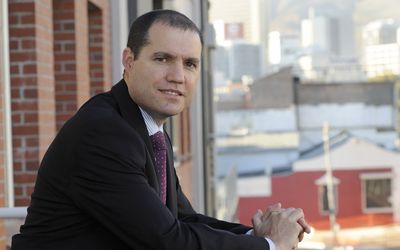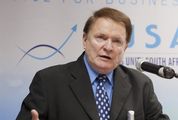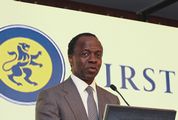THE Treasury’s call for lower retirement fund fees and significant consolidation is not the only challenge facing the sector. Interest is building among investors for smaller, more nimble and cost-efficient passive investment offerings, which are beginning to steal a march on their bigger rivals.
In an industry accustomed to charging some of the highest fees in the world, the winds of change are blowing, with active investment managers themselves reported to be moving to lower-cost index-investing retirement options for their personal portfolios. A number of high net worth individuals, and even banks, are following suit.
Retirement investment fees of 3% in South Africa are among the highest in the world, yet passive managers can bring fees down to below 1%.
Often overlooked by investors is that the 3% fee reduces potential returns by well over 50%, a situation CEO Steven Nathan of low-cost passive investing house 10X says is "ruining retirements" for nine out of 10 South Africans.
By offering one solution at one cost without confusing choices and layers of management, 10X is able to offer 0.9% for its retirement annuity. The market is noticing and in the past year the company has doubled its assets under management to R2bn.
"That 2% reduction gives you 60% more at retirement," says Mr Nathan. "There is a problem with the persistently high failure rates in South Africa, where 90% of people have for a long time failed to retire with adequate funds."
The Treasury, which is busy establishing new retirement cost policies, wants to see a consolidation from 3,000 funds to as little as 100 as part of the process and is busy sharpening the teeth of the pensions regulator to improve transparency and consistency.
The head of retirement policy reform at the Treasury, David McCarthy, says the level of preserving retirement savings in South Africa is disturbingly low and there is a "bewildering" and "startling" level of complexity to products.
Mr Nathan says hidden fees remain a major problem because these are not disclosed on pension fund statements, though members have little understanding of the layers of fees anyway.
Another problem, he says, is providers often "deflect" attention away from the fee topic.
He says disclosing higher fees for offshore investing — which is higher than local asset management — is seldom disclosed.
The Treasury’s recent paper on costs showed that workers in South Africa could get twice as much when they retire if the charges were reduced closer to 0.5% from 3.5%.
However, the Treasury said it was not going to establish a specific costs target.
It was considering various "default options" for savers.
An employee funds consultant at 10X, Fikile Shezi, who formerly worked for two of the mainstream retirement companies, said on Wednesday: "There are a lot of people between you and your portfolio that all want a fee.
"You need to stand back and ask if they are adding value. The problem is they only disclose what they feel is appropriate."
She said there was a need in South Africa for tools to quantify total fees, as trustees need to know total scheme fees as a percentage of assets. "It is important to look at the long-term fee impact."
Employee financial consultant Dave Crawford says one challenge is to get the buy-in from senior management when it comes to proper education and communication. "Members do not understand the process as a general rule.
"You can start by holding presentations and engaging them. Start by getting reluctant people in and pique their interest. The people too frightened to come start to come."
The chief product architect at 10X, Tracy Jensen, says making decisions after retirement was just as important, especially if compulsory products are used, as the value of money will halve in 13 years at the current rate of inflation.
Living annuities in South Africa — which are market-return based, as opposed to inflation-linked guaranteed annuities — can charge as much as 1.5% in management fees. It leaves the untenable outcome that providers can get more income than the retired person if 3% is paid in fees a year and the retiree aims to draw down 5% a year.
"The member interest is not coming first. The industry has forgotten who is the boss — the primary fiduciary duty should be to the member," says Mr Nathan.
John Bogle, founder of the world’s second-largest unit trust, Vanguard Group, recently criticised the firm he helped establish for focusing too much on marketing and making it a spending priority. He believes the US is headed for a retirement crisis and says calculations expecting returns of 8% are "lofty", as after fees and taxes they could only be 2% or even 1%.
Another proponent of passive investing via tracker funds is Charles Ellis from Greenwich Associates. He says investors are paying 80 basis points in fees to get a less valuable product than the market delivers. He believes that investors will move faster into index funds.

Steven Nathan, CEO 10X Investments. Picture: FINANCIAL MAIL
THE Treasury’s call for lower retirement fund fees and significant consolidation is not the only challenge facing the sector. Interest is building among investors for smaller, more nimble and cost-efficient passive investment offerings, which are beginning to steal a march on their bigger rivals.
In an industry accustomed to charging some of the highest fees in the world, the winds of change are blowing, with active investment managers themselves reported to be moving to lower-cost index-investing retirement options for their personal portfolios. A number of high net worth individuals, and even banks, are following suit.
Retirement investment fees of 3% in South Africa are among the highest in the world, yet passive managers can bring fees down to below 1%.
Often overlooked by investors is that the 3% fee reduces potential returns by well over 50%, a situation CEO Steven Nathan of low-cost passive investing house 10X says is "ruining retirements" for nine out of 10 South Africans.
By offering one solution at one cost without confusing choices and layers of management, 10X is able to offer 0.9% for its retirement annuity. The market is noticing and in the past year the company has doubled its assets under management to R2bn.
"That 2% reduction gives you 60% more at retirement," says Mr Nathan. "There is a problem with the persistently high failure rates in South Africa, where 90% of people have for a long time failed to retire with adequate funds."
The Treasury, which is busy establishing new retirement cost policies, wants to see a consolidation from 3,000 funds to as little as 100 as part of the process and is busy sharpening the teeth of the pensions regulator to improve transparency and consistency.
The head of retirement policy reform at the Treasury, David McCarthy, says the level of preserving retirement savings in South Africa is disturbingly low and there is a "bewildering" and "startling" level of complexity to products.
Mr Nathan says hidden fees remain a major problem because these are not disclosed on pension fund statements, though members have little understanding of the layers of fees anyway.
Another problem, he says, is providers often "deflect" attention away from the fee topic.
He says disclosing higher fees for offshore investing — which is higher than local asset management — is seldom disclosed.
The Treasury’s recent paper on costs showed that workers in South Africa could get twice as much when they retire if the charges were reduced closer to 0.5% from 3.5%.
However, the Treasury said it was not going to establish a specific costs target.
It was considering various "default options" for savers.
An employee funds consultant at 10X, Fikile Shezi, who formerly worked for two of the mainstream retirement companies, said on Wednesday: "There are a lot of people between you and your portfolio that all want a fee.
"You need to stand back and ask if they are adding value. The problem is they only disclose what they feel is appropriate."
She said there was a need in South Africa for tools to quantify total fees, as trustees need to know total scheme fees as a percentage of assets. "It is important to look at the long-term fee impact."
Employee financial consultant Dave Crawford says one challenge is to get the buy-in from senior management when it comes to proper education and communication. "Members do not understand the process as a general rule.
"You can start by holding presentations and engaging them. Start by getting reluctant people in and pique their interest. The people too frightened to come start to come."
The chief product architect at 10X, Tracy Jensen, says making decisions after retirement was just as important, especially if compulsory products are used, as the value of money will halve in 13 years at the current rate of inflation.
Living annuities in South Africa — which are market-return based, as opposed to inflation-linked guaranteed annuities — can charge as much as 1.5% in management fees. It leaves the untenable outcome that providers can get more income than the retired person if 3% is paid in fees a year and the retiree aims to draw down 5% a year.
"The member interest is not coming first. The industry has forgotten who is the boss — the primary fiduciary duty should be to the member," says Mr Nathan.
John Bogle, founder of the world’s second-largest unit trust, Vanguard Group, recently criticised the firm he helped establish for focusing too much on marketing and making it a spending priority. He believes the US is headed for a retirement crisis and says calculations expecting returns of 8% are "lofty", as after fees and taxes they could only be 2% or even 1%.
Another proponent of passive investing via tracker funds is Charles Ellis from Greenwich Associates. He says investors are paying 80 basis points in fees to get a less valuable product than the market delivers. He believes that investors will move faster into index funds.























Register/Login
Close XMy News
You can only set up or view personalised news headlines when you are logged in as a registered user. Thereafter you can choose the sectors of industry in which you are interested, and the latest articles from those sectors will display in this area of your console.
Login or Register.Top Stories
My Watchlist
You can only set up or view your share watchlist when you are logged in as a registered user. Thereafter you can select a list of companies and enter your share details to monitor their performance.
Login or Register.My Clippings
You can only clip articles when you are logged in as a registered user. Thereafter you can click on the "Read later" icon at the top of an article to save it to this area of your console, where you can return to read it at any time.
Login or Register.Change: -1.21%
Change: -1.31%
Change: -1.11%
Change: -1.12%
Change: -2.16%
Data supplied by Profile Data
Change: 0.00%
Change: 0.00%
Change: -1.21%
Change: 0.00%
Change: 0.00%
Data supplied by Profile Data
Change: -0.05%
Change: 0.06%
Change: 0.01%
Change: -0.09%
Change: -0.29%
Data supplied by Profile Data
Change: 0.00%
Change: 0.00%
Change: 0.00%
Change: 0.00%
Change: 0.00%
Data supplied by Profile Data